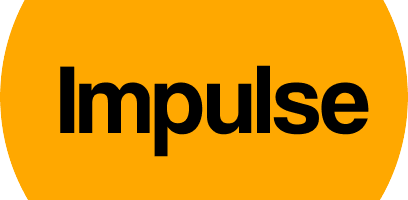Report
Latvia Invites Fintech:
MiCA License in Just Three Months
Sergey Safronov
On June 13, Barcelona hosted the symposium "Speed of Latvia: Blockchain Gateway to the European Market," organized by the Investment and Development Agency of Latvia (LIAA). The event marked the opening of LIAA’s first office in Spain and the official launch of Latvia’s strategy to attract Web3 businesses from across Europe.
We spoke with Edgars Ivanovs, Head of LIAA’s Representative Office in Spain, to understand why this Baltic country is positioning itself as a magnet for blockchain companies — and a serious contender in the global fintech arena.
We spoke with Edgars Ivanovs, Head of LIAA’s Representative Office in Spain, to understand why this Baltic country is positioning itself as a magnet for blockchain companies — and a serious contender in the global fintech arena.
“It’s simple,” Edgars says. “The EU’s MiCA regulation is coming into force, putting an end to the ‘wild west’ era of crypto. Every company working with crypto assets and serving EU clients will need to obtain a license.”
While in most countries this process can take more than a year, Latvia offers a MiCA license in just three months. The process is conducted in English, preliminary consultations with the regulator are available online, and even cryptocurrencies can be used as share capital.
For entrepreneurs concerned about relocating their entire team, Edgars reassures:
“Yes, you need to register a legal entity in Latvia, but it only takes two or three days. One board member must reside in Latvia to communicate with the regulator, but the rest of the team can stay in Spain, Portugal, or anywhere else.”
Company registration is not a mere formality — it’s a key step in a transparent process overseen by the Latvian Central Bank.
While in most countries this process can take more than a year, Latvia offers a MiCA license in just three months. The process is conducted in English, preliminary consultations with the regulator are available online, and even cryptocurrencies can be used as share capital.
For entrepreneurs concerned about relocating their entire team, Edgars reassures:
“Yes, you need to register a legal entity in Latvia, but it only takes two or three days. One board member must reside in Latvia to communicate with the regulator, but the rest of the team can stay in Spain, Portugal, or anywhere else.”
Company registration is not a mere formality — it’s a key step in a transparent process overseen by the Latvian Central Bank.
"Fintech and blockchain are, above all, about trust in the regulator. And we’re building a system where that trust doesn’t have to be begged for — it emerges from clear and transparent rules of the game."
At the symposium, Latvian players showed how the model already works. Gravity Team, for example, provides liquidity to over 400 crypto assets. With billions in daily turnover and no need for VC funding, they exemplify how Web3 can generate real business value.
“That’s one of Web3’s advantages,” Edgars notes. “If you find your niche, you can quickly reach profitability without external capital.”
Discussions in Barcelona also covered asset tokenization, the growing role of banks and investment funds, and the rising interest of Spanish companies in the Latvian jurisdiction, especially amid regulatory delays elsewhere.
So why can Latvia offer this?
“It’s not just political will — it’s also readiness. We have a high level of STEM education, more than 60% of the population speaks English, and our students outperform EU averages in math and science,” says Edgars.
“We have the talent, the infrastructure, a responsive regulator, and strong political support. Latvia is a natural gateway to Europe for tech companies.”
Beyond crypto and fintech, Latvia is expanding in green energy and dual-use technologies, including military-industrial cooperation with Spain. One example: a €373 million contract for defense equipment that has opened the door to joint projects between the two countries.
“That’s one of Web3’s advantages,” Edgars notes. “If you find your niche, you can quickly reach profitability without external capital.”
Discussions in Barcelona also covered asset tokenization, the growing role of banks and investment funds, and the rising interest of Spanish companies in the Latvian jurisdiction, especially amid regulatory delays elsewhere.
So why can Latvia offer this?
“It’s not just political will — it’s also readiness. We have a high level of STEM education, more than 60% of the population speaks English, and our students outperform EU averages in math and science,” says Edgars.
“We have the talent, the infrastructure, a responsive regulator, and strong political support. Latvia is a natural gateway to Europe for tech companies.”
Beyond crypto and fintech, Latvia is expanding in green energy and dual-use technologies, including military-industrial cooperation with Spain. One example: a €373 million contract for defense equipment that has opened the door to joint projects between the two countries.

